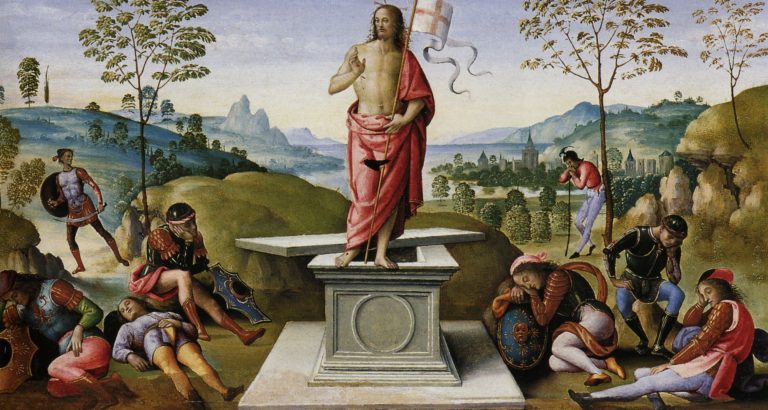What to do in Easter time: practical advice from the fathers of the Church

What can we do differently or better now that we know the Fathers? What can we learn from them? Here are some things that I have learned and that I try to keep in mind in my work and in my testimony, with my family, in the neighborhood and in the Church. Here are some very practical steps.
LOVE WHAT IS GOOD IN CULTURE. St. Justin the Martyr sought the "seeds of the Word" all over the world, in today's culture and thought. We too should look for places where we can meet people, affirm the good they do and bring them closer to Christ. San Giustino also said that all the good is already ours. It already belongs to the one God, who is the Lord of all creation.
ISSUE OF A MORAL CHALLENGE. It is not enough to accentuate the positive. We must also reject sinful things. The Fathers did not convert the Roman Empire by compromising with pagan morality. They spoke out against abortion, contraception, divorce and the unfair use of military force. They put an end to the culture of death by allowing the culture to become something better. With God's grace, we can do the same today.
USE THE MEDIA YOU HAVE. The Fathers didn't have much in the way of technology, but they used everything they had. They wrote letters and poems. They wrote songs that taught doctrine and told biblical stories. They commissioned great works of art. But they also engraved symbols of Faith - a fish, a boat, an anchor - on common household items. They have traveled. They preached. Today we have electronic media, not to mention good old-fashioned books. Be creative.
BRING THE FATHERS TO YOUR PRAYER AND STUDY. Read them. Read about them. If life grants you the privilege, make a pilgrimage to the places where they walked. We live in an era where so much is available to us. St. Thomas Aquinas said that he would exchange all of Paris for a single volume of Chrysostom. We have hundreds of Chrysostom works for free online, in addition to all the other ancient writers, and there are many accessible and popular books to help us learn and pray with the Fathers and Mothers of the Church.
BRING THE FATHERS TO YOUR TEACHING. Share the things that excite you. Your excitement will be communicable. Show icons. Read the steps, but keep them short. Use some documentaries, graphic novels, films and even animated films that characterized early Christians.
TEACH LIKE THE FATHERS. Put the sacraments in the center. Non-Catholics may not understand these mysteries of faith, but when we speak to our people we should remind them of what God has done for them. Through baptism and the Eucharist, they became "partakers of the divine nature", children of God in the eternal Son of God. St. Basil said that the moment of baptism extends throughout life. Let's never forget it! Around 190 AD, Saint Irenaeus said: "Our way of thinking is in harmony with the Eucharist and the Eucharist in turn confirms our way of thinking". For us as for the Fathers, the sacraments are the key to everything.
CELEBRATE THE SEASONS. The Church calendar is the most effective catechism. Repeatedly tells the story of salvation, through the beauty of holidays and fasts. Each day is a new and different opportunity to teach the Good News, to spread some doctrine and to guide people in the ways of prayer.
PONDER THE GREAT MARVELES OF THE TRINITY AND THE INCARNATION. Read the Gospels and believe with ancient comments. Look at the difference that Jesus has made in your life and in human history. Don't let these wonderful realities become worn coins. He tries to capture the mania of the doctrine that Gregory of Nissa found boring in his day. We can use some today! Remember: the ancients were prepared to die or be exiled for small points of belief. We must love the Faith so much. But we can't love what we don't know.
KEEP YOUR SENSE OF MOOD. He is in command of God, and we already know that the story ends well. As a result, St. Irenaeus could raise his serious criticisms of heresies with a hilarious satire. San Gregorio di Nissa could write a fun and captivating fundraising letter. San Lorenzo the deacon could look up from the grate towards his executioner and say: "Turn me. I'm done this way. ”Humor can be a sign of hope. And happy Christians proclaim an attractive faith.
SEARCH THEIR INTERCESSION. The faith of our fathers still lives, but so are the men and women who have kept that faith. They are saints whose intercession we should seek. They have accomplished great things in their allotted time on earth. Now they can do even more, for our lives in the Church they love.
So we go to San Giustino, San Ireneo, San Perpetua, San Ippolito, San Cipriano, Sant'Atanasio, Santa Macrina, San Basilio, San Girolamo, Sant'Agostino. . . and we say: pray for us!